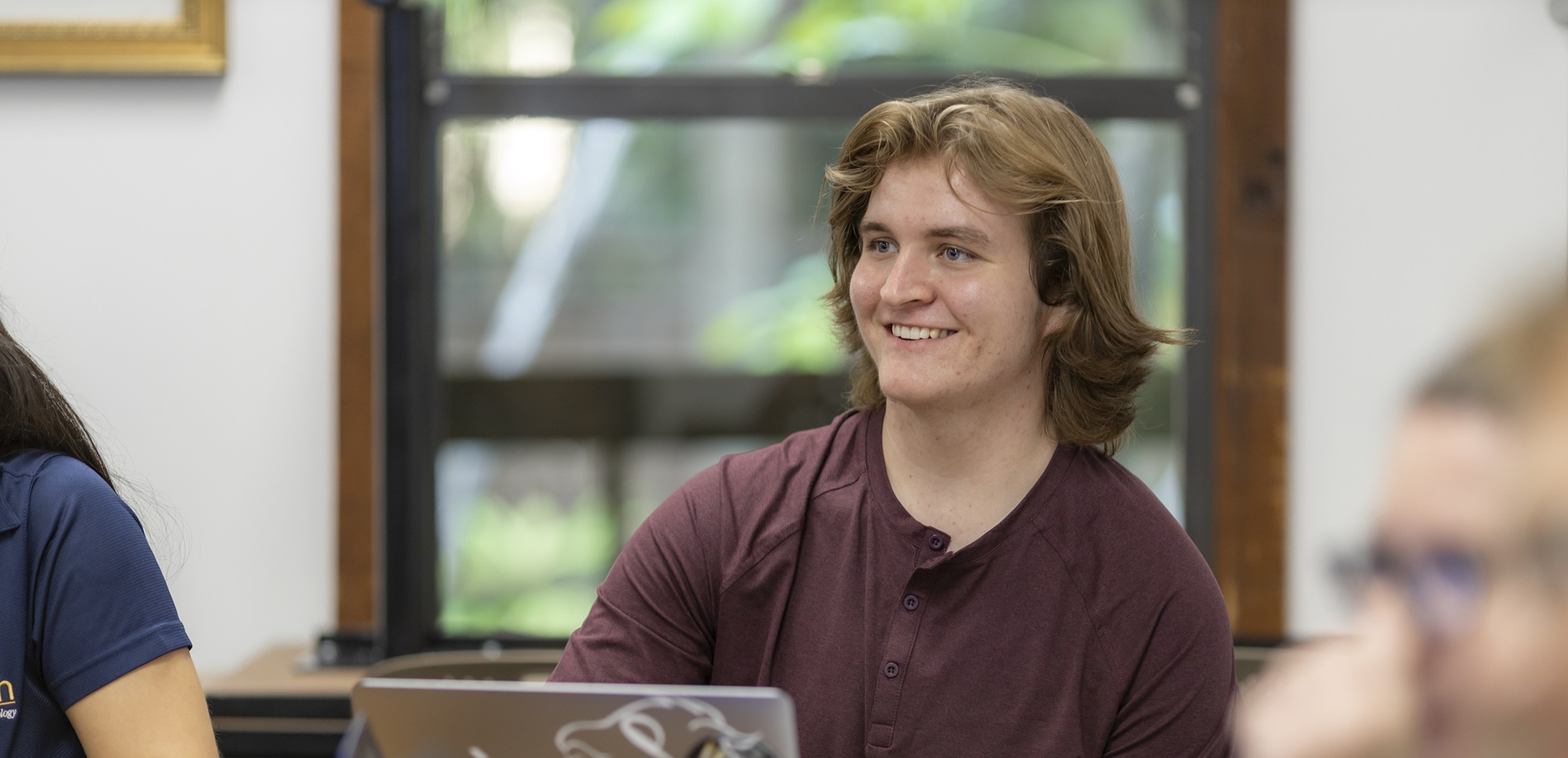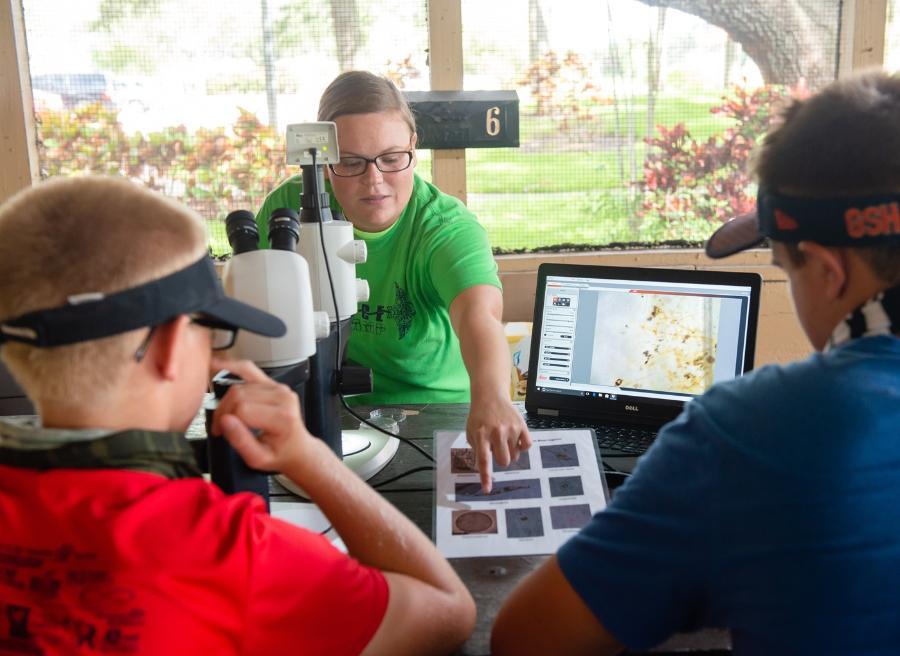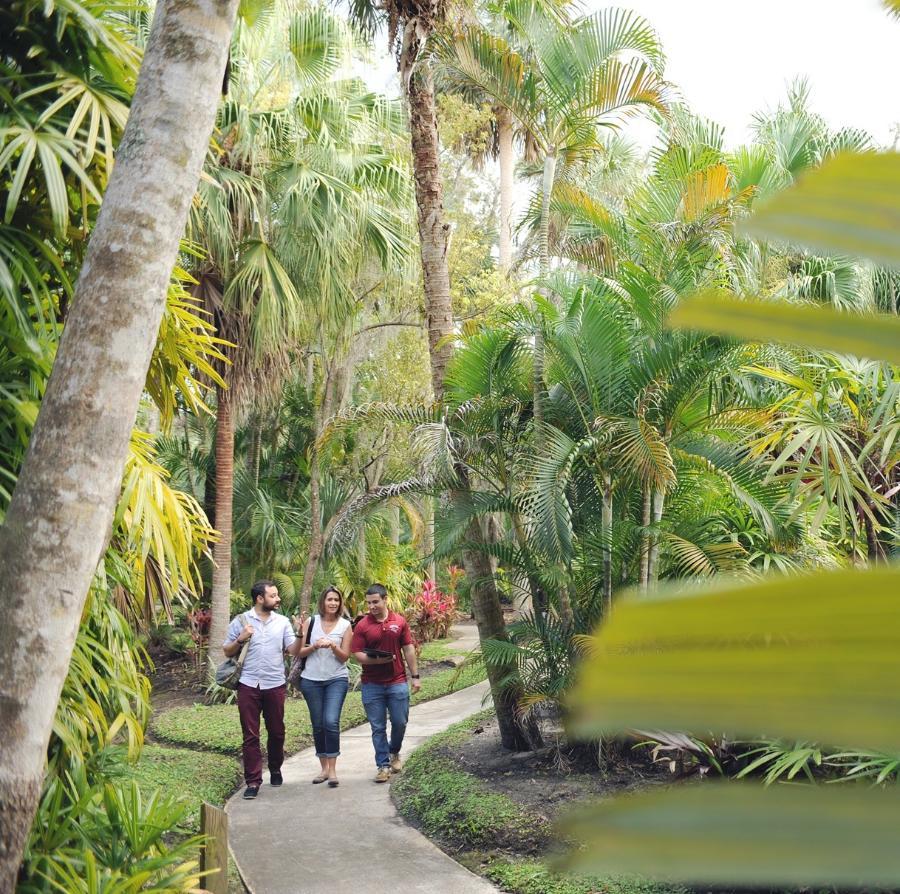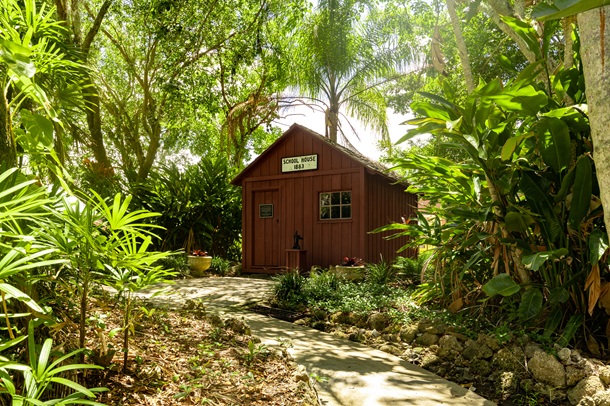Inspiration Grows Here
Florida Tech’s location on Florida’s Space Coast offers an exceptional setting for students interested in environmental and informal science education.
Just minutes from the remarkably biodiverse Indian River Lagoon and near Kennedy Space Center and Cape Canaveral, the university is situated amid rich opportunities for science education, conservation outreach and community engagement.
Located right in the heart of campus, the Joy and Gordon Patterson Botanical Garden—affectionately known as “The Jungle”—is a shady, 15-acre hammock abounding in over 200 species of palm trees and other tropical growth. Tucked behind some foliage at the garden's entrance is Brevard County’s first schoolhouse, a one-room house built in 1883.

 Give to Florida Tech
Give to Florida Tech 



